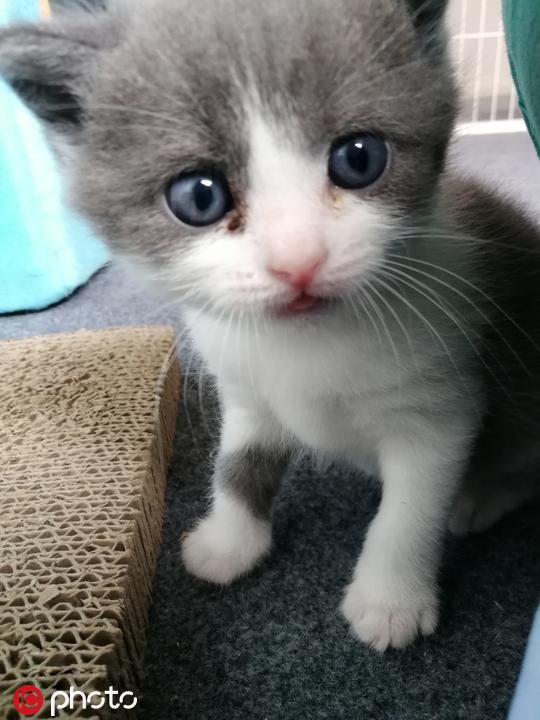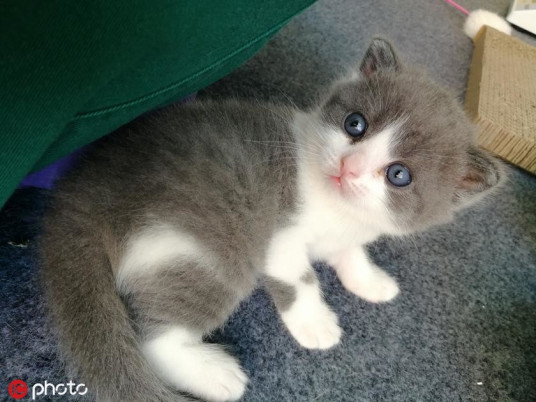Cloned cat brings real comfort to its owner
A Chinese biotech company produced the country's first cloned cat last month, offering a solution for cat lovers heartbroken by the death of a beloved pet.
The cloned British Shorthair cat, named Dasuan-Garlic in English-was born on July 21, 66 days after a successful embryo transfer in a laboratory of Beijing based-Sinogene, the biotech company.
"My cat (also called Dasuan) died of illness in January. If it weren't for my carelessness in missing the best time for his treatment, he would be 3 years old now," said Huang Yu, Dasuan's owner.
Sinogene created the world's first cloned dog using the somatic cell transfer technique in 2017.
"We began cat cloning research and experiments in August last year," said Zhao Jianping, vice-president of Sinogene. "Although the surrogate mother, a 2-year-old domestic cat, is not the same breed as Dasuan, she is showing great maternal instincts and taking good care of the cloned offspring."
The dead cat that supplied the cells for cloning and the cloned kitten look identical and have a great chance of having similar behavior, Zhao said.
"The cloned kitten is 90 percent like my original cat," Huang said.
Dasuan had been dead for nearly six hours when Huang recalled the news about the cloned dog and contacted Sinogene. Staff members told him to make a quick decision because it would be better to extract the cells within 24 hours.
 |
|
A photo released by Sinogene Biotechnology Co shows the cloned kitten Dasuan born on July 21 in Beijing. [Photo/IC] |
"I had already buried the cat by that time," Huang said. "Thanks to the cold weather in winter, the body was relatively well preserved."
He wrapped the exhumed cat's body in a wet towel and placed it in the refrigerator, as instructed by Sinogene. The next morning, the company extracted tissue beneath the skin of its thigh to retrieve cells for cloning.
Shi Zhensheng, a member of the Chinese Association of Animal Science and Veterinary Medicine, said cloning a cat was not easy.
"Cats are different from most animals as they cannot ovulate spontaneously, which adds to the difficulties during the cloning process," he said. "The cultivation of the cloned cat is one of the few successful cases in the world, marking a major step for China in this field."
Sinogene charges 250,000 yuan ($35,400) to clone a cat and 380,000 yuan for a dog.
"My family doesn't understand why I insisted on spending so much money on cloning a cat. But it provided me with a chance to ease my pain," Huang said, adding that he can't wait to take Dasuan home in October.
Zhao said Sinogene was interested in exploring the possibility of transferring memories to cloned pets if such technology ever became available.
 |
|
A photo released by Sinogene Biotechnology Co shows the cloned kitten Dasuan born on July 21 in Beijing. [Photo/IC] |

